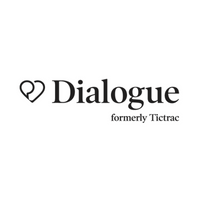Five factors to consider when introducing a global wellbeing programme

Increasingly, conversations appear to be shifting from considering wellbeing as one-off initiatives to recognising that the health and wellbeing of a workforce is a strategic business priority for the longer term. Some organisations have already introduced a health professional to their board or leadership team. There is also a recognition that workforce wellbeing should be considered from a holistic perspective, covering many pillars including mental, physical, and financial wellbeing.
There are many statistics, reports and data points signalling an increasing need for organisations to focus on the health and wellbeing of their people:
The World Economic Forum (WEF) predicts that by 2030 the cost of mental disorders alone to the global economy could reach up to $16 trillion – more than diabetes, respiratory disorders and cancer combined.
• The Health and Safety Executive (HSE) reported that 38.8 million work days were lost due to work-related ill health and non fatal work related injuries in 2019/2020 in Great Britain - depression, anxiety, stress and musculoskeletal disorders accounting for most days lost.
Through years of working with global organisations we have identified several factors that play heavily into the successful introduction and ongoing adoption of holistic wellbeing programmes - both from a company and individual employee perspective. The main factors we see include the team, workforce demographics, clear objectives and outcomes, organisational culture and workforce engagement.
1. The team
The most successful rollout and adoption of wellbeing solutions we see bring together a range of teams including business leaders, HR, those responsible for employee experience, health and safety and occupational health. There is collaboration from the design of the programme right through the ongoing rollout and adoption – all having full visibility, including access to the emerging data and insights.
2. Workforce demographics
Ensure thorough consideration of the demographic makeup of the workforce. This includes careful consideration to factors such as cultural needs, translation needs, unique organisational and people challenges, as well as any scenarios that your workforce are likely to require support with. This will help to ensure that the wellbeing programme being designed is inclusive, relevant and valuable to your workforce.
3. Objectives and expected outcomes
This is simple and common sense, but so important to ensuring the programme’s longer-term success. It also makes sure that there is clear agreement and understanding between the organisation making the investment and the wellbeing provider. Use the objectives and expected outcomes as an ongoing reference as the programme is introduced across the organisation helps to measure and gauge effectiveness.
4. Culture of organisation
Really understanding the culture of the organisation is so important as this will likely play a significant role in the success or failure of your programme. This goes deeper than the values of your organisation. Each organisation has its own needs to be factored into the plans – including cultural norms and nuances, challenges and potential opportunities. The wellbeing programme alone will not drive a cultural change or culture of wellbeing.
5. Ongoing workforce engagement
There are several interconnected factors, including people, processes, technology and data that should be considered to ensure success with any new wellbeing programme. People will bring your wellbeing programmes to life and help them thrive across your organisation – look for champions and give them the tools to make the programme a success. Stay close to the data and insights as the weeks and months pass – these will give early indications on what is happening across your organisation.
The above factors play out in varying ways across organisations. The one thing all organisations we work with have in common is a strong desire to support the health and wellbeing of their workforces.
Supplied by REBA Associate Member, Dialogue formerly Tictrac
We're an employee wellbeing platform dedicated to helping employees live healthier lives.







